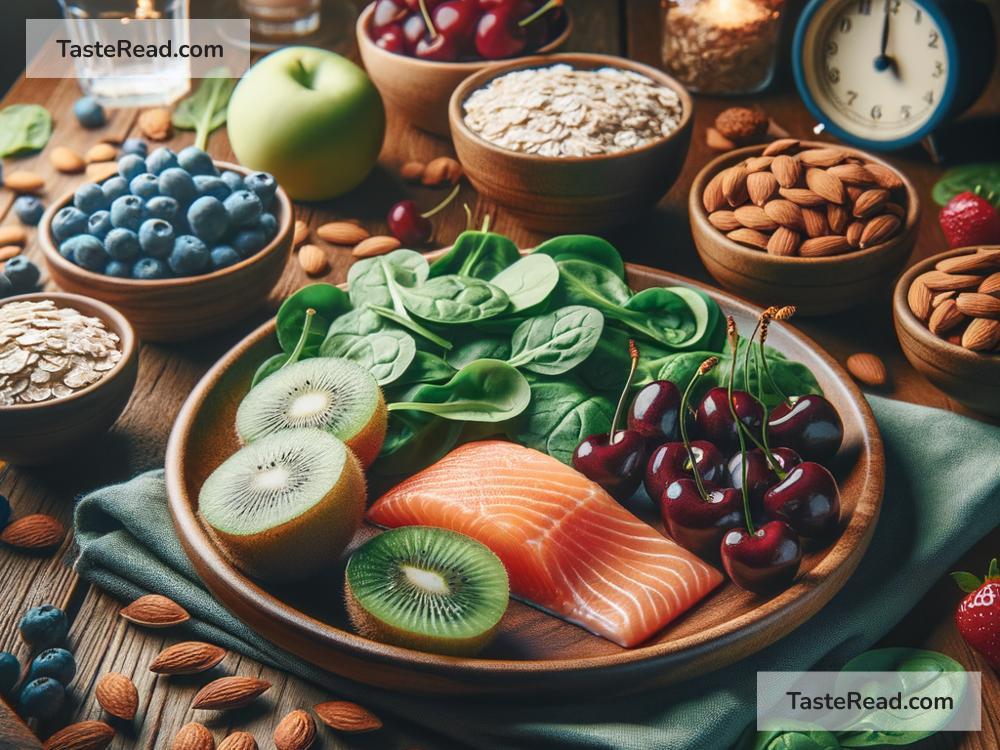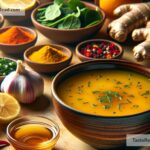Foods That Reduce Risk of Sleep Apnea
Sleep apnea is a common but serious condition where breathing repeatedly stops and starts during sleep. It can leave you feeling tired, foggy, and even lead to long-term health problems like heart disease or high blood pressure. While sleep apnea often requires medical treatment, such as using a CPAP machine or lifestyle changes, did you know that the foods you eat can also impact your risk of sleep apnea?
Certain foods help lower inflammation, improve muscle function, and maintain a healthy weight—all factors that can reduce the symptoms or risk of sleep apnea. In this article, we’ll explore foods that may play a role in helping you breathe better and sleep soundly.
Why Food Matters for Sleep Apnea
Sleep apnea is often associated with obesity, airway inflammation, or weakened muscles around the throat. Eating unhealthy foods can increase weight gain, inflammation, and other risk factors for sleep apnea. On the other hand, certain foods packed with nutrients can calm inflammation, support better breathing, and help you maintain or achieve a healthier body weight.
Adjusting your diet isn’t a cure-all, but it can complement other methods of treating sleep apnea. Here are some foods to include in your weekly meals.
1. High-Fiber Foods
Fiber-rich foods like vegetables, fruits, whole grains, beans, and seeds improve digestion and help regulate weight. Maintaining a healthy weight is critical because excess fat around the neck can put pressure on your airway, making sleep apnea worse.
The best fiber sources include:
– Fruits: Apples, bananas, berries, oranges, and pears.
– Vegetables: Broccoli, spinach, carrots, and kale.
– Whole grains: Brown rice, oats, quinoa, and whole-grain bread.
Fiber also helps reduce inflammation by encouraging healthy gut bacteria, which can have an impact on your immune system and breathing.
2. Omega-3 Fatty Acids
Foods rich in omega-3 fatty acids can reduce inflammation in your body, including the airways. Chronic inflammation increases the risk of obstructive sleep apnea, where throat muscles relax too much during sleep.
Omega-3 sources include:
– Fatty fish: Salmon, mackerel, sardines, and tuna.
– Nuts and seeds: Walnuts and flaxseeds.
– Plant-based oils: Olive oil or flaxseed oil.
Including omega-3-rich foods in your diet helps keep your airways open and less inflamed, which promotes better airflow while you sleep.
3. Magnesium-Rich Foods
Magnesium is a mineral that promotes muscle relaxation and supports proper functioning of the nervous system. This is especially useful for people with sleep apnea, as relaxed throat and tongue muscles can prevent blockages in the airways.
Magnesium-rich foods include:
– Leafy greens: Spinach, kale, and Swiss chard.
– Nuts and seeds: Almonds, sunflower seeds, and pumpkin seeds.
– Legumes: Black beans, lentils, and chickpeas.
– Avocados and bananas: Both are delicious and full of magnesium!
Adding these foods to your diet may enhance the performance of your muscles, especially during sleep, helping to reduce sleep apnea symptoms.
4. Antioxidant-Rich Foods
Antioxidants protect your body from oxidative stress, which can worsen inflammation and sleep apnea. By boosting antioxidants, your body can reduce damage to respiratory tissues and promote better oxygen flow.
Top antioxidant foods include:
– Berries: Blueberries, raspberries, and strawberries.
– Dark leafy vegetables: Spinach, cabbage, and broccoli.
– Herbs and spices: Turmeric, ginger, and garlic.
– Nuts: Pecans and walnuts.
Drinking green tea is also a great way to add more antioxidants to your diet!
5. Foods Rich in Vitamin D
Vitamin D plays a big role in keeping your immune system healthy and strong. Studies have shown that a deficiency in vitamin D may lead to inflammation in the airways, making sleep apnea worse. Eating foods rich in vitamin D can help improve your overall health.
Food sources of vitamin D include:
– Eggs: Especially the yolk.
– Fatty fish: Like salmon, sardines, and tuna.
– Fortified foods: Milk, yogurt, and cereals.
Sunlight is another great source of vitamin D, so spend some time outdoors whenever you can.
6. Herbal Teas
Herbal teas like chamomile and peppermint are known for their calming effects. Drinking these teas before bed can relax your throat muscles and promote better sleep. Plus, they hydrate your body, which helps clear mucus and keep airways open.
Foods to Avoid
To reduce your risk of sleep apnea, you should also avoid foods that worsen inflammation or unfavorably affect your body weight:
– Sugary foods: Candies, cakes, and sodas.
– Processed foods: Chips, frozen meals, and fast food.
– Refined carbs: White bread and pasta.
– Excess alcohol: Alcohol relaxes your throat muscles, which can make sleep apnea worse.
Conclusion
If you’re living with sleep apnea, changing your diet can make a big difference. Foods high in fiber, omega-3s, magnesium, antioxidants, and vitamin D can help reduce inflammation, improve muscle function, and even support weight loss. Incorporating these healthy choices into your meals may not only help you sleep better but also improve your overall health.
Remember, diet is just one piece of the puzzle! Make sure to follow your doctor’s advice and explore other treatments for sleep apnea. With the right approach, you can breathe easier—and finally get the restful sleep you deserve.


